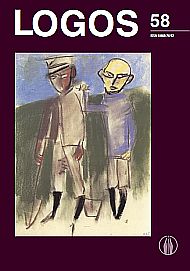Saliamonas Ibn Gabirolis: Fons Vitae Versmé
Solomon Ibn Gabirol: the springs of Fons vitae
Author(s): Juozas ŽilionisSubject(s): Jewish Thought and Philosophy, Philosophy of Middle Ages, Existentialism, Philosophy of Religion, Hermeneutics
Published by: Visuomeninė organizacija »LOGOS«
Keywords: Solomon Ibn Gabirol; treatise Fons vitae; Jewish philosophy; unity of religion and mysticism;
Summary/Abstract: The article discusses the theological and philosophical dialog Fons vitae (Fountain of Life) by famaous 11th century Jewish thinker Solomon Ibn Gabirol, a child of three cultures: Arab, Greek and Jewish, who succeeded in philosophy, theology, grammar and poetry. The Fons vitae is a philosophical dialog between master and disciple, originally written in Arabic and translated into Latin in the year 1150. Its title is derived from philosophical as well as from religious sources: from Psalms “For with thee is the fountain of life...” (Ps 36,9) and the fact that it regards matter and form as the basis of existence and the source of life in every created thing. Although Plato is the only philosopher directly mentioned in the dialog, the significant influence of Plotinus thoughts is noticeable. The dialogue consists of five tractates: the first treats matter and form in general and in physical substances; the second considers the substance which underlies the corporeality of the world; the third proves the existence of simple substances; the fourth proves that these substances are likewise constituted of matter and form; and the fifth considers universal matter and universal form. Gabirol claims that God”s will, which is situated below His infinity, comprehends the essence of the Creator and His creation. That essence is twofold, for it encompasses matter and form. Gabirol employs Philonian theosophical terms and concepts for the synthesis of Greek and Jewish mentality.
Journal: LOGOS - A Journal of Religion, Philosophy, Comparative Cultural Studies and Art
- Issue Year: 2009
- Issue No: 58
- Page Range: 94-102
- Page Count: 9
- Language: Lithuanian

